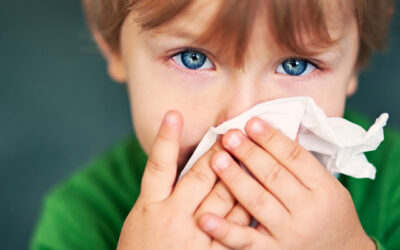Every parent wants their child to be healthy and happy, but for those whose children have been diagnosed with asthma, the challenges of managing this condition can feel overwhelming. Understanding the basics of asthma in children can go a long way toward ensuring they receive the proper care and support they need to thrive.
Dean S. Edell, MD, pediatric pulmonologist with Our Lady of Lourdes Children’s Health, shares the basics of asthma and what families should know about this chronic respiratory condition and its treatment.
What is Asthma?
Asthma is reversible airway closure. Imagine you have a charley horse in your calf and it slowly spasms. That’s exactly what an asthma attack feels like, only instead of your leg it’s your lungs.
How to Spot an Asthma Attack in Children
Many patients with asthma telegraph themselves that they’re getting sick. Parents can pick up on this message by noticing their child’s respiratory rate increasing. It’s easiest to see when looking at their child’s chest. When you’re giving them a bath or you’re at the pool, look at them with their shirt off and count their respiratory rate.
Does Asthma Run in Families?
Asthma is incredibly common in children, and there is an important family history associated with asthma. If one parent wheezes, it increases a child’s chances considerably. If both parents wheeze, that also increases the chances tremendously.
Eczema is sometimes called skin asthma. And children living with eczema have an increased risk for wheezing.
Can Kids Outgrow Asthma?
Most kids do outgrow the reactivity. But most kids over time get better.
The gold standard for treating asthma is with medications: preventative medicines and medicines for intervention, sometimes called rescue medication. These are most often given via inhaler.
Why Follow-Up Care Matters
The most important aspect of asthma care is appropriate follow up. Describe symptoms that haven’t improved, and your provider will look at your child’s lung function to make sure treatment is working and make any needed adjustments.
The good thing about asthma is it’s very controllable with inhalers and risk avoidance. It’s also controllable now with a new class of drugs called biologics for severe patients if inhalers fail for them. Now almost every patient with asthma can live a near normal quality of life.




